From July 7th to 16th, the “Intelligent Civil Engineering and Intelligent Construction” International Summer School, organized by the School of Civil Engineering at Harbin Institute of Technology, successfully concluded. This event centered around AI-powered civil engineering and intelligent construction, featuring lectures from two international academicians and several well-known overseas scholars, along with some innovative hands-on activities. It attracted 36 students from various institutions, including Moscow State University, Moscow State University of Civil Engineering, Ulyanovsk State Technical University, Bauman Moscow State Technical University, Jeonbuk National University, and Hanyang University.
Opening Ceremony
On July 7th, the 2025 International Summer School on “Intelligent Civil Engineering and Intelligent Construction” officially kicked off in the lecture hall of the School of Civil Engineering. The focus of the event was AI-enabled civil engineering and intelligent construction. Attendees included Professor Zhou Wei, the Vice Dean of the School of Civil Engineering, and faculty representatives such as Professors Dagan Lü and Xu Yang, as well as the participating students. A group photo was taken at the opening ceremony to mark the occasion.
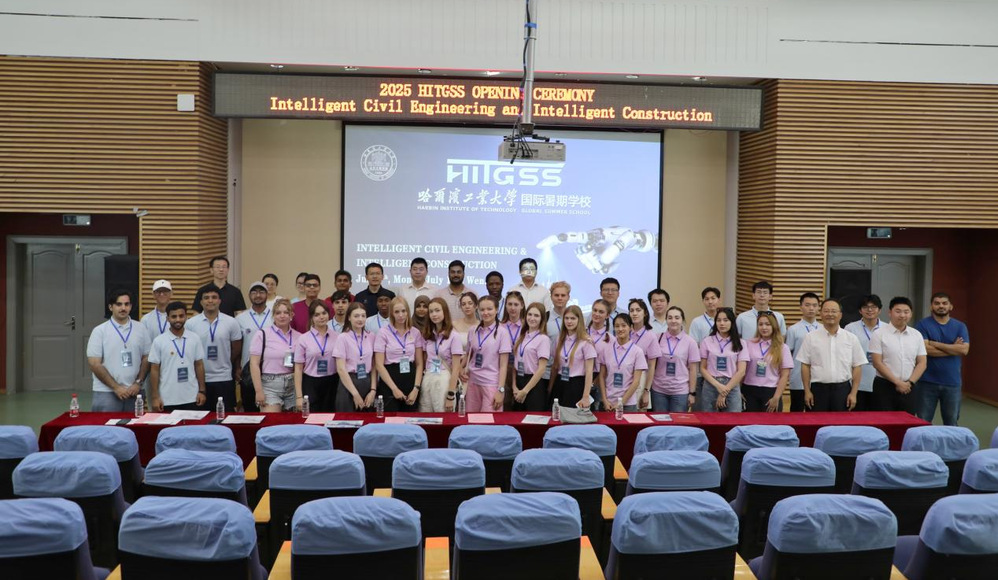
Lectures
Academician Michael Havbro Faber from the Danish Academy of Technical Sciences gave two lectures. One was titled “Decision Making in Engineering,” and the other was “On the Modeling and Quantification of Risk, Robustness, Resilience, and Sustainability of Systems.” In these lectures, he shared both theoretical methods and practical applications for making engineering decisions when dealing with uncertainties. He emphasized cutting - edge theories for formulating operational strategies, improving safety assessments, and optimizing designs based on the reliability, resilience, and sustainability of engineering structures.
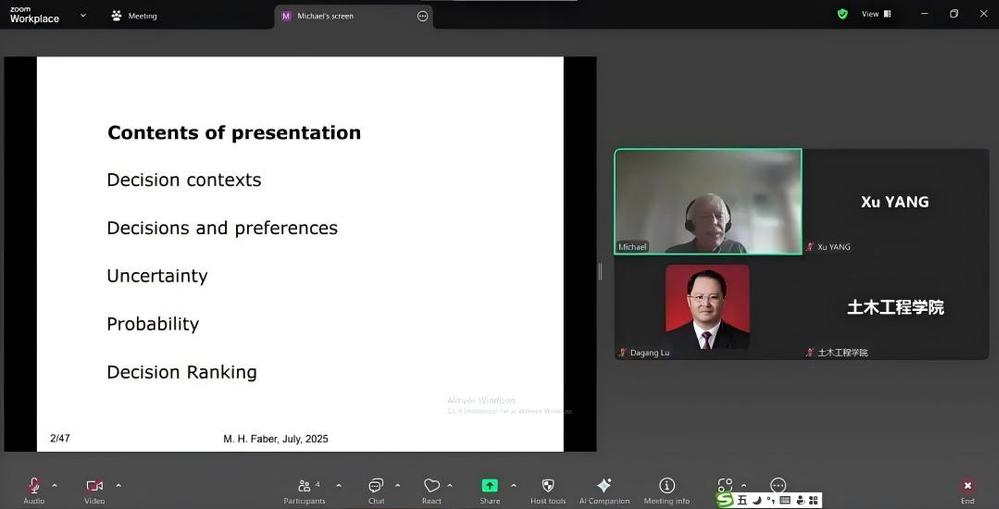
Academician Kyung Chun Kim from the Korean Academy of Science and Technology presented lectures on “Energy Harvesting Technology Based on Vortex-Induced Vibration” and “4D-PTV Measurements of 3-D Bubble Morphology and Surrounding Flow Field.” He explained new energy-harvesting methods and systems, especially wind energy-harvesting systems with potential urban applications. He also shared his frontier research on measuring bubble morphology and three-dimensional flow fields using 4D-PTV technology and proposed innovative solutions for applying 4D-PTV to large-scale flow field measurements in civil engineering.
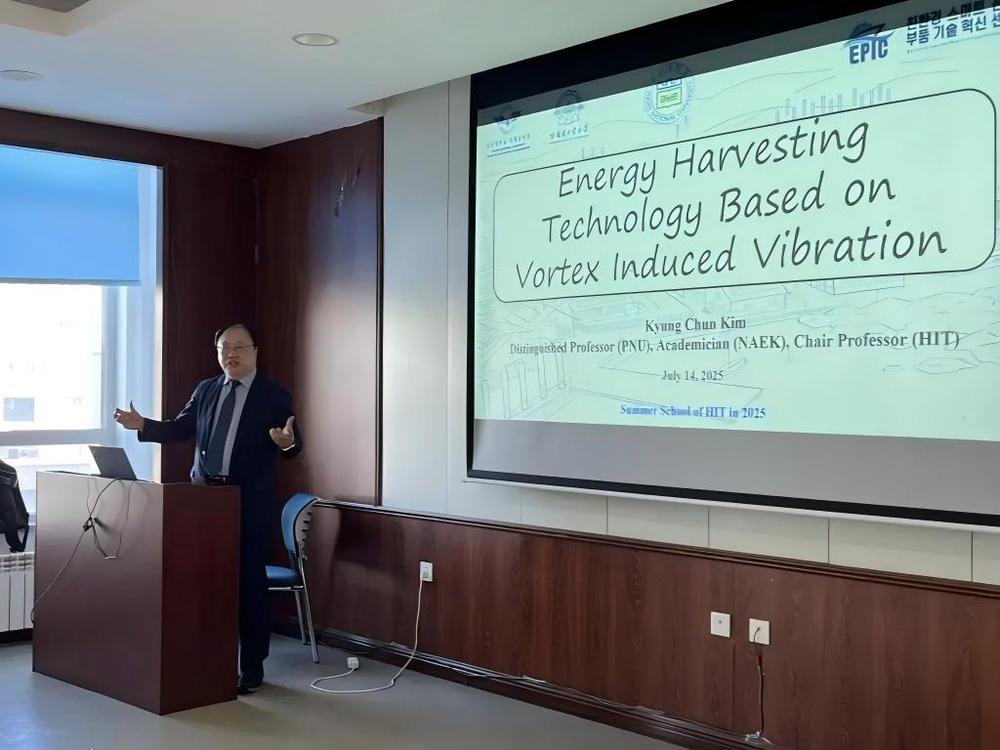
Apart from these academician lectures, the summer school curriculum also covered important theories, technologies, and methods in intelligent civil engineering and smart construction. Topics included AI applications in civil engineering, seismic risk and resilience assessment in civil and infrastructure projects, applied mathematics in civil engineering, the use of molybdenum tailings in concrete, understanding elasticity from academic knowledge to practical use, and basic concepts of probability and statistics.
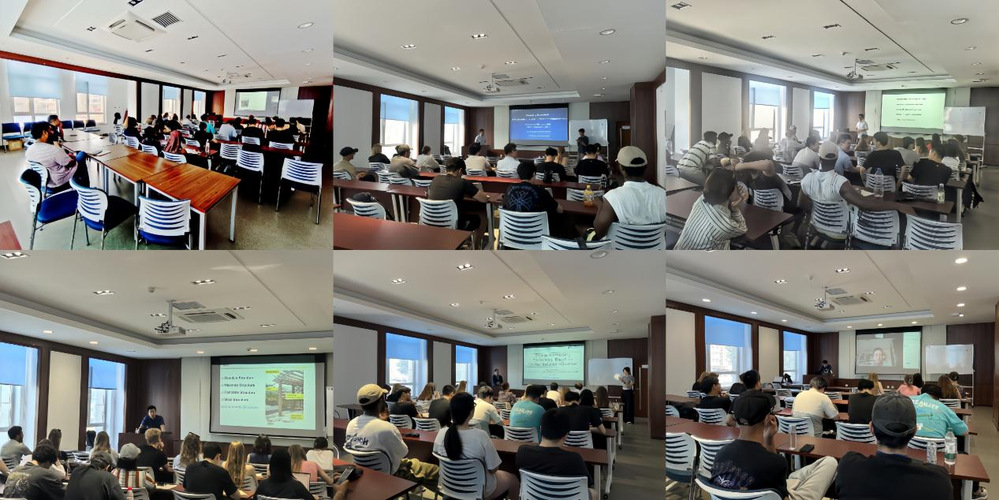
Hands-on Projects
The program included a series of innovative practical tasks arranged in a progressive way. It followed an immersive teaching model of “learning by doing and doing by learning.” This approach effectively connected theory with practice, laying a good foundation for students to participate in the development of smart civil engineering in the future. Group members were seen posing with their models during the practical projects.
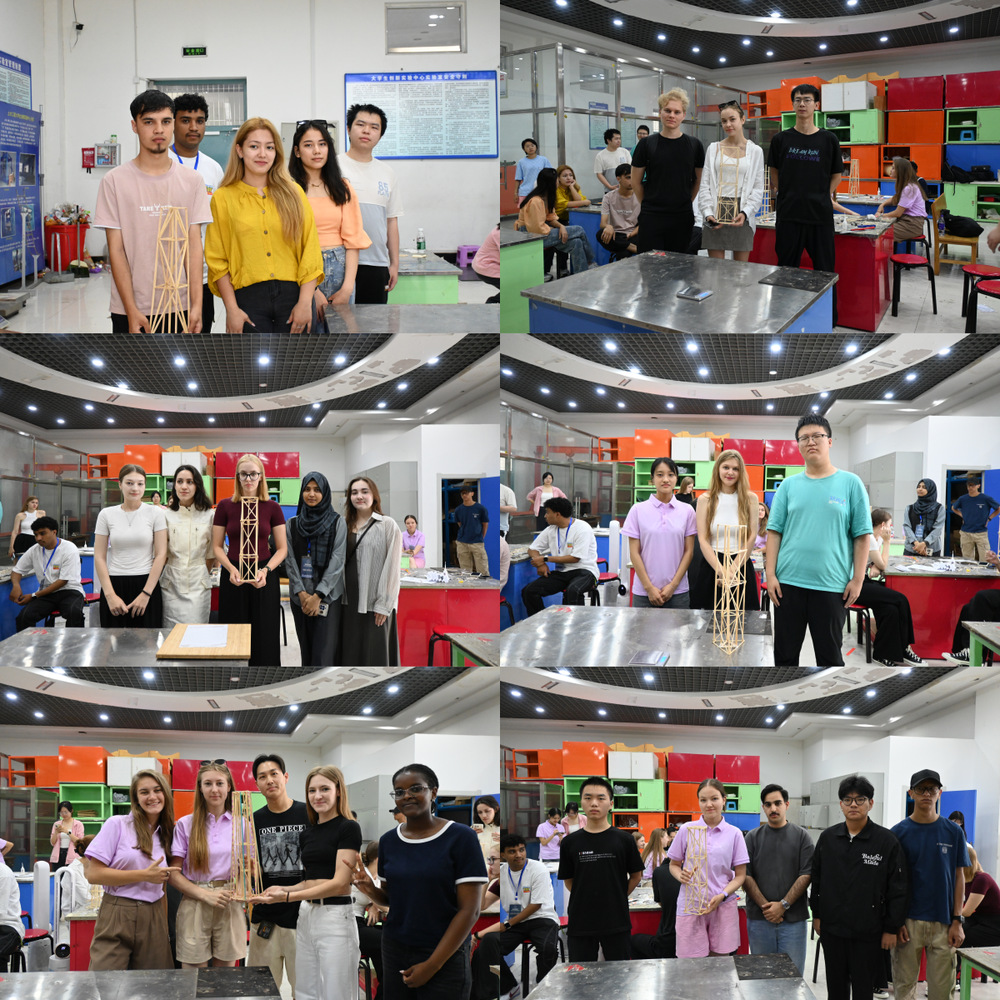
Closing Remarks
The “Intelligent Civil Engineering and Intelligent Construction” International Summer School established an innovative global platform that integrated industry, academia, and research. Through intense learning and hands-on innovation, the program encouraged the exchange of creative ideas and cutting-edge technologies. Its goal was to cultivate all-around talents with international perspectives, skills in using intelligent tools, and strong teamwork abilities, thus promoting the emergence of new forces in the global smart construction field.
责任编辑:
审核:吴婉琼


